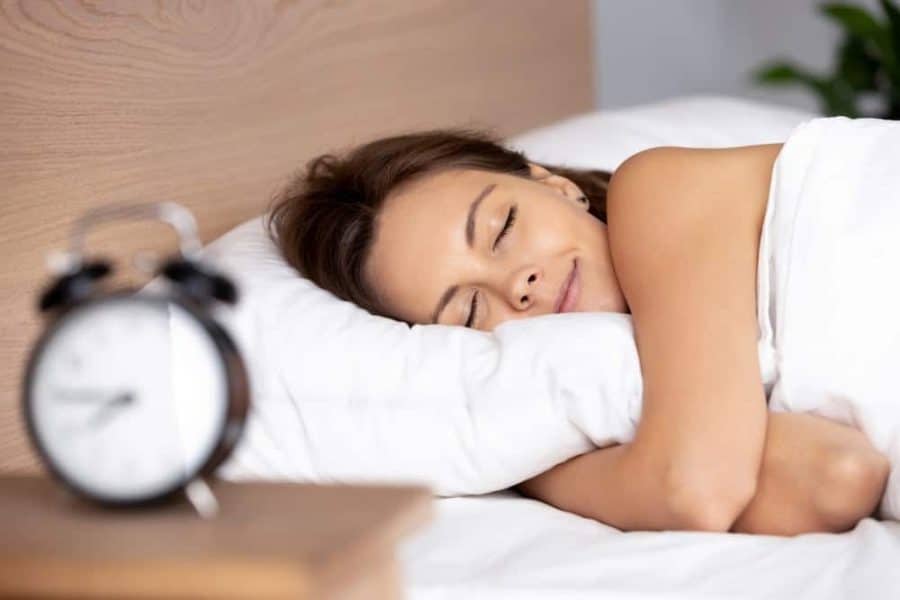Getting a good night’s sleep is essential to staying healthy, both physically and mentally. Yet every day so many people struggle to fall asleep, and fail to get the rest they need. It’s a pretty serious problem, seeing as over 50 million Americans suffer from a sleeping disorder of some kind. If you, like so many others, feel like you’ve been experiencing problems with sleep, then check out these three tips and tricks to improve the quality of your sleep.
1. Make Yourself More Comfortable at Night
If you can’t manage to get comfortable, it can end up taking a long time to fall asleep. If you want to get a better night’s sleep then you have to remember that comfort is key.
Your mattress and bedding can have a dramatic impact on the quality of your sleep. A good mattress can help to prevent stiffness, back problems, and joint pain, whereas a poor mattress can do the opposite, and exacerbate all of these issues. Therefore, you should shop around and find a nice mattress suited to your needs.
However, as you probably know, mattresses can be exorbitantly expensive. If a nice mattress is outside of your budget at the moment, then consider purchasing a memory foam mattress topper, which can improve even the most rigid mattresses.
Of course, you should also make sure that you have soft sheets, plenty of pillows, and anything else you might need to sleep soundly. If you have any conditions that affect the quality of your sleep, then look into getting something that will remedy it.
For example, millions of Americans suffer from nighttime acid reflux that interferes with their sleep, oftentimes the result of a condition called gastroesophageal reflux disease (GERD). You might address this issue by getting a wedge pillow for GERD, which can provide some relief and help you sleep symptom-free throughout the night.
Big name brands and quality mattresses include but aren’t limited to Tempurpedic, Simmons Beautyrest, Sterns & Foster, Sleep Number and more. Nolah Mattress is a newcomer to the market and yields a patended air foam technology that provides a superior experience for hot and side sleepers. Their mattress and additional info can be found by visiting their website.
2. Limit Your Exposure to Screens Before Bed
While it can be tempting to scroll through social media on your phone or watch TV right before going to bed, it’s ultimately not in your best interest. That’s because the screens of electronic devices like smartphones, computers, and TVs emit blue light, which can disrupt your sleeping patterns. Plus, electronics can provide high amounts of stimulation to your brain, and that can make it very difficult to relax and get to sleep even once you put them away.
Try to steer clear of bright light and electronic screens in the hour or so before you plan on going to sleep. Instead of flipping on the TV or going on your phone, attempt to meditate or read a book, as these activities can help your brain wind down and prepare you for sleep.

3. Maintain a Healthy Diet
We all know that it’s important to eat nutritious foods and drink water in order to generally stay in good health. But did you know that sticking to a healthy diet can actually help you sleep better too?
Well, it’s true—eating plenty of fruits, vegetables, and lean proteins can keep your mind and body in good shape and minimize the amount of disturbances that can potentially wake you up in the night, such as an upset stomach or heartburn. Conversely, consuming processed foods, excess sugar, and refined carbs can negatively affect the quality of your sleep, keeping you up at night when you’d rather be in a deep sleep state.
It’s not only what you eat that’s important, it’s when you eat as well. Having a big meal right before bedtime can result in digestive problems and stomach pains when you’re trying to get to sleep, so try to schedule your dinner for earlier in the night—at least two hours before you plan on going to bed.
Another diet-related tip is to avoid drinking caffeine and alcohol late in the day. Caffeine is a stimulant and should really only be consumed in the morning, as it’s energizing effects can last for up to ten to twelve hours for some people. And while you may think that alcohol helps you get to sleep, it actually hinders the quality of your sleep in most cases. Alcohol consumption before bed has been reported to worsen sleep apnea and interfere with the production of melatonin in your body, which can potentially throw off your sleep patterns.
Sleep problems are no joke. If you’ve been having trouble sleeping, try out one or all of these tips and see if they help. If nothing seems to work, you may want to see a doctor and find out if you’re suffering from a more serious condition of some kind.
Millions of people in the United States suffer from a common sleep disorder called obstructive sleep apnea. This condition causes the patient to snore loudly and experience pauses in breathing (called apnea) as often as one hundred times an hour during sleep. People with sleep apnea usually need a machine that supplies a steady flow of pressurized air down their airways to prevent apnea episodes. The machine produces the air, which travels through a tube to a full-face or nasal mask worn by the user. You can’t buy this machine without a doctor’s prescription, so it’s best to get diagnoses to receive the help you need immediately.



